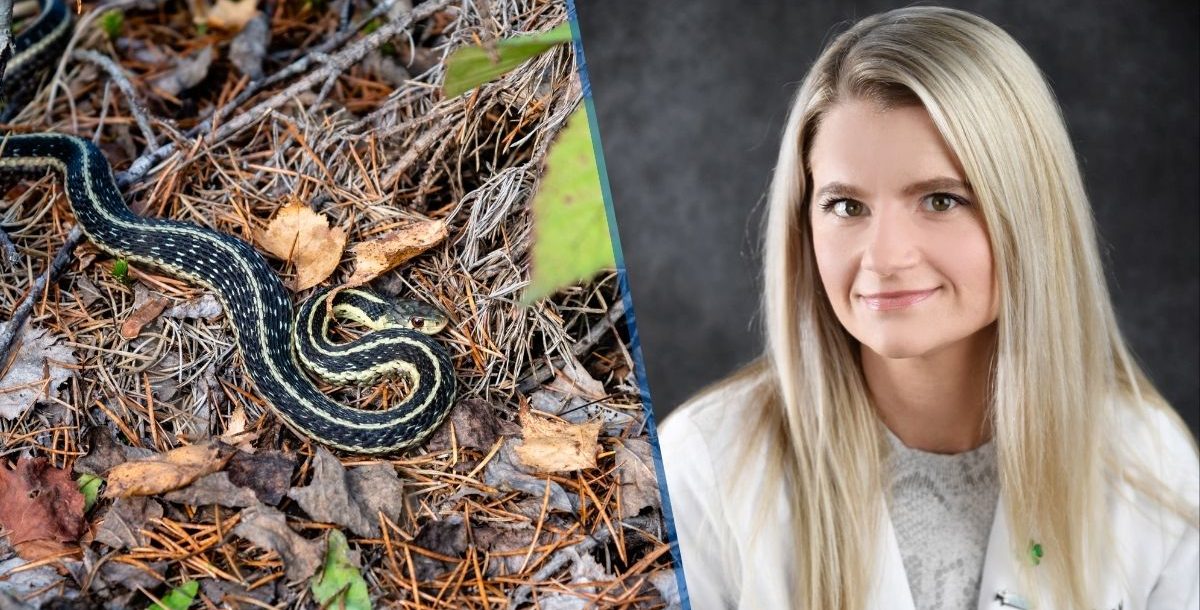Summer is the season for getting outdoors as well as for brushing up on snake safety tips.
When you’re going for a walk, on a hike or mowing the lawn, you’ll want to watch your step. Snakes also tend to be more active outdoors this time of year. The cold-blooded animals typically hibernate during the winter months, re-emerging from their dens during the warmer months.
While you may not be a fan of snakes, sometimes the best way to handle a snake encounter is to not react at all.
“Don’t attempt to kill all snakes that you see,” Dawn Zellner, MD, an emergency medicine physician at Bon Secours St. Francis, says. “If you leave them alone, they will leave you alone.”
The Centers for Disease Control and Prevention (CDC) says only about 10 percent of snakes in the United States are venomous. They’re typically characterized by having a big, broad, triangular-shaped head and elliptical pupils like a cat. Some also have a hole on their face, between the eye and nose, for heat sensing.
“Wearing long pants, sleeves and high-top boots when in snake areas can definitely help protect you as well,” Dr. Zellner adds.
So, what happens if you do end up with a snake bite?
It’s first and foremost important to know what not to do about snake bites, which includes:
- Don’t attempt to kill or capture the snake to bring into the emergency department. “If the snake is dead so you can safely take a photo, that will suffice,” Dr. Zellner adds.
- Don’t attempt to suck out the venom or incise the fang marks.
- Don’t apply a tourniquet or constricting items – the wound should be allowed to bleed freely.
- Don’t engage in strenuous activity, and keep the extremity at heart level.
The only anecdote for venomous snake bites is a medication that only emergency departments stock, so don’t delay seeking care.
On your way to the emergency room, you can call poison control at 1-800-222-1222. They can direct you to the appropriate hospital with anti-venom and advise you on caring for the wound before you arrive.
Additionally, it is important to remember that not all snake bites are a venomous snake bite that needs anti-venom. However, all snake bites will require a long observation period in the emergency department.
“So, do anticipate staying there for a long time,” Dr. Zellner says.
Learn more about the emergency care services we offer at Bon Secours.





